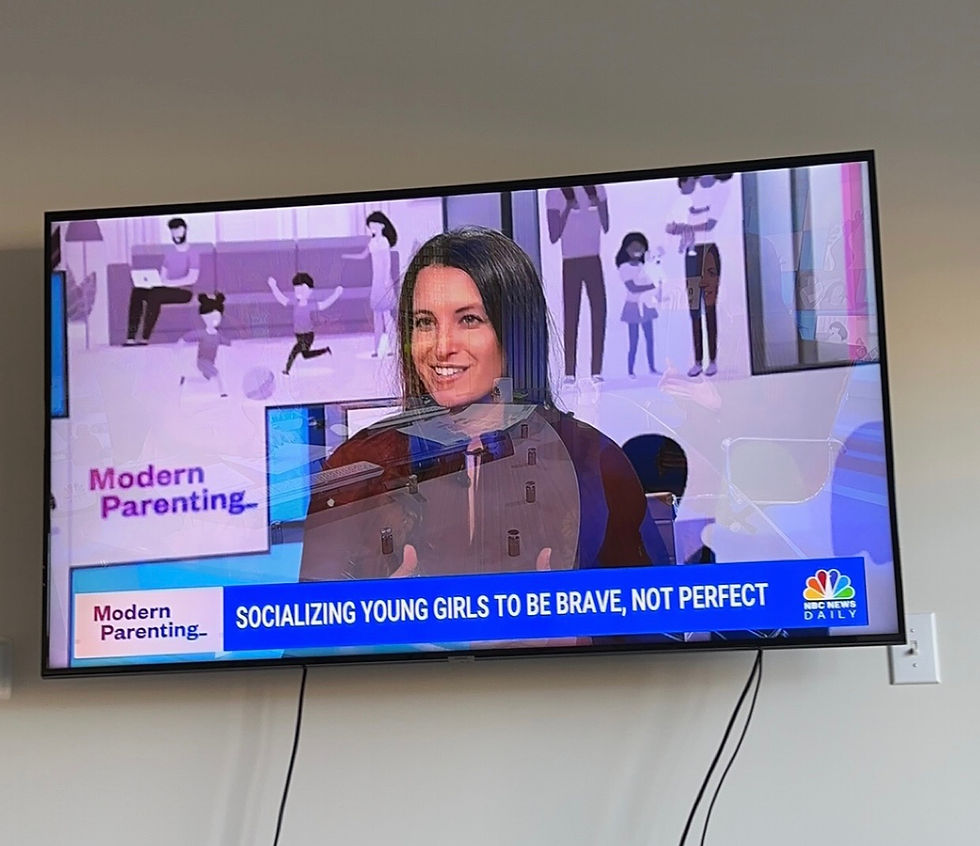Shutdown: Agora (YC S19)
- Allie Walsh

- Mar 13, 2023
- 4 min read
Updated: Jun 22, 2023
The following piece was intended for Y Combinator's internal forum, "Bookface." Founders often post reflections when they decide shut down their companies. YC didn't allow this particular piece after 2 attempts. There is nothing negative about Y Combinator in this post.

News headline I saw on NBC recently.
Two weeks ago, I made the decision to dissolve my company Agora (S19). Agora was supposed to be a search engine for local inventory, but we pivoted to selling small business products from across the country on Shopify and Instagram during the pandemic. The decision to shut down did not come easily, but it was the best choice for my mental health and overall well-being.
In a recent conversation with one of my investors following the shutdown, we discussed the mental toll that startups can take on a founder. I think a big thing that I didn’t understand when I started Agora in 2019 is that, by nature of having an early stage startup, you’re constantly in survival mode. I grew up constantly in survival mode as a kid and young adult in an abusive home. Continuing that state of mind into adulthood was eating away at my mental health. Not to mention doing it alone as a solo-founder. Starting a company frequently requires an economic safety net and support system that I simply didn’t have at the time. Many of my YC peers enjoyed these things—that safety net and the family support—and I did not understand how critical they are to starting a company.
My mental health became so dark while in the pressure cooker of the batch that my partners didn’t allow me to do Demo Day. When I came back later with a working product and asked to do Demo Day at a later date, they still didn’t let me. (Yes, this happens.) For a long time I was very angry at YC because of this. This made it a lot more difficult for me to raise money and continue with Agora. But I realize now they might have been saving me from myself.
Agora lasted nearly 4 years on $200k in funding total. I think that puts us in the “cockroach” category of YC companies. (Key learning: It probably should've ended a lot sooner. You have to know when to quit.) I did everything to make it work—even took odd jobs, working at a café as a barista in NYC to support myself, which a lot of my YC friends in the city didn’t understand. I was living the lean startup life, to say the least. The ego I once had fresh out of college in 2019 was demolished.
I wanted it to be perfect—so perfect, in fact, that in the beginning I could barely take action. I struggled with making daily company decisions. Lots of doctor visits and hospital stays later, I was diagnosed with OCD and depression while trying to operate this company and bring my dreams to reality. This was not a recipe for success.
Re: striving for perfection, one thing I’ve learned in all this is that “done is better than perfect.” In fact, that’s the best protocol for “real life” post-school. For many of us who came from A+ backgrounds and elite colleges, we are taught to strive for perfection as a way to advance our lives. And later, we have to un-learn this the hard way.
Agora wasn’t that successful when held to YC standards. But it was a vessel for personal growth, self-discovery, and healing—things that I never thought a company was supposed to be. I’m definitely in a moment where I’m trying to figure out who I am and what I’m supposed to do in the world. I thought I was supposed to be entrepreneur and build generational wealth for myself and my family. It’s alarming to me how wrong I was at the time, and I’m re-learning how to trust myself again.
These days, I’m less motivated by future dollars, and more motivated by working on some of the world’s biggest problems and questions. I’m happy to report that I’ve been accepted to two graduate programs in Philosophy, and waiting on a couple more acceptances. (Key learning from startup building: play to your strengths. Do what you’re good at.) In potential graduate school, I will be tackling economic philosophy and the philosophy of technology. A core question I will be exploring is: “How will democracy and capitalism endure in the internet age of artificial intelligence?” I’d love to talk more with founders on topics like these, and more general thoughts and reflections can be found here on my blog.
Penultimately, I really implore that YC do more to support the mental health of founders. I know I’m not alone in the startup-life mental health struggle, and truly exceptional people often have difficult backgrounds. Starting companies is no small task, and—despite it seeming increasingly accessible—not everyone should do it. People should think hard before starting a company and assess if they are in a position to handle that level of risk. (When all your friends from Harvard and YC do it, it seems like the right thing to do. But we need more counseling and realism on this.) I’m open and willing to discuss my experience and brainstorm ways that YC can support founder mental health going forward in future batches.
Last thing, and arguably the most important thing: to anyone who ever made a purchase from Agora or supported us in anyway, I thank you from the bottom of my heart. You literally supported me and many other small businesses during a difficult time. Every time I got a notification about a new purchase or a new customer, my heart would skip a beat. Thank you so much.
Thank you all for the ride of a lifetime.
Allie





Comments